Unfree Trade Agreements

Free trade agreements are great, as long as the trade is really free, and as long as people stick to the agreements. In Korea, foreign automakers and distributors say Korean lawmakers and government agencies try to keep them out. There is talk of “import bashing,” says Reuters.
“Korea is a highly protected market. Despite recent agreements to open up its market, the government is not helping … it’s actually doing its best to keep the barriers in place,” Reuters heard from “a senior global automaker executive.”
Imports are selling well in a market that ;previously was nearly entirely home-grown. In January-April, sales of imported passenger cars accounted for 12 percent of the market, up from just 2 percent a decade ago. Hyundai/Kia sales were flat.
- In March, the offices of the Korea Automobile Importers and Distributors Association were raided by investigators of the country’s Fair Trade Commission. The agency alleged that BMW, Mercedes-Benz, Volkswagen and Toyota Motor were involved in price collusion.
- In the same month, South Korean lawmakers proposed a bill to reduce corporate tax breaks on cars priced above 50 million won ($44,000) and bought as company cars – typically those top-of-the-range models from German, Japanese and U.S. automakers. For luxury marques such as Bentley, Porsche and Rolls-Royce, over 70 percent are bought as company cars.”
- This week, local media reported that BMW Korea was being investigated by the tax authorities.
Meanwhile, Autoblog joins the fray, with the harrowing tale that “BMWs are cheaper than Hyundais in Korea,” and that “foreign brands have seen market share jump from 28 percent to 41 percent over the last two years.” Utter nonsense. Reuters correctly reports that imports have a 12 percent share in Korea, 11.83 percent to be exact for the first four months of the year, according to data by the Korea Automobile Importers and Distributors Association (KAIDA).
If you go to the considerable trouble of actually looking at the data, you see that imports to South Korea, which were at homeopathic levels before the turn of the millennium, went on a slow but steady rise in 2001. The trade agreement with the EU (from where most of the imported cars come) came in effect in 2011. The chart says that imports would have gone up anyway, with the FTA, or without it.

Bertel Schmitt comes back to journalism after taking a 35 year break in advertising and marketing. He ran and owned advertising agencies in Duesseldorf, Germany, and New York City. Volkswagen A.G. was Bertel's most important corporate account. Schmitt's advertising and marketing career touched many corners of the industry with a special focus on automotive products and services. Since 2004, he lives in Japan and China with his wife <a href="http://www.tomokoandbertel.com"> Tomoko </a>. Bertel Schmitt is a founding board member of the <a href="http://www.offshoresuperseries.com"> Offshore Super Series </a>, an American offshore powerboat racing organization. He is co-owner of the racing team Typhoon.
More by Bertel Schmitt
Latest Car Reviews
Read moreLatest Product Reviews
Read moreRecent Comments
- Groza George I don’t care about GM’s anything. They have not had anything of interest or of reasonable quality in a generation and now solely stay on business to provide UAW retirement while they slowly move production to Mexico.
- Arthur Dailey We have a lease coming due in October and no intention of buying the vehicle when the lease is up.Trying to decide on a replacement vehicle our preferences are the Maverick, Subaru Forester and Mazda CX-5 or CX-30.Unfortunately both the Maverick and Subaru are thin on the ground. Would prefer a Maverick with the hybrid, but the wife has 2 'must haves' those being heated seats and blind spot monitoring. That requires a factory order on the Maverick bringing Canadian price in the mid $40k range, and a delivery time of TBD. For the Subaru it looks like we would have to go up 2 trim levels to get those and that also puts it into the mid $40k range.Therefore are contemplating take another 2 or 3 year lease. Hoping that vehicle supply and prices stabilize and purchasing a hybrid or electric when that lease expires. By then we will both be retired, so that vehicle could be a 'forever car'. Any recommendations would be welcomed.
- Eric Wait! They're moving? Mexico??!!
- GrumpyOldMan All modern road vehicles have tachometers in RPM X 1000. I've often wondered if that is a nanny-state regulation to prevent drivers from confusing it with the speedometer. If so, the Ford retro gauges would appear to be illegal.
- Theflyersfan Matthew...read my mind. Those old Probe digital gauges were the best 80s digital gauges out there! (Maybe the first C4 Corvettes would match it...and then the strange Subaru XT ones - OK, the 80s had some interesting digital clusters!) I understand the "why simulate real gauges instead of installing real ones?" argument and it makes sense. On the other hand, with the total onslaught of driver's aid and information now, these screens make sense as all of that info isn't crammed into a small digital cluster between the speedo and tach. If only automakers found a way to get over the fallen over Monolith stuck on the dash design motif. Ultra low effort there guys. And I would have loved to have seen a retro-Mustang, especially Fox body, have an engine that could rev out to 8,000 rpms! You'd likely be picking out metal fragments from pretty much everywhere all weekend long.



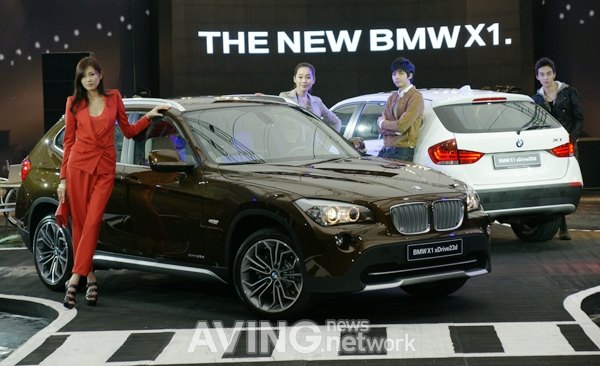

















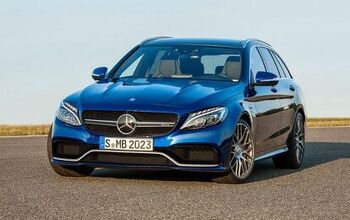
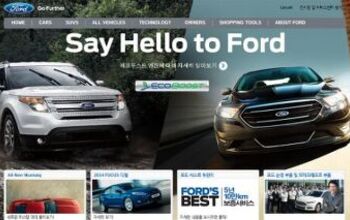
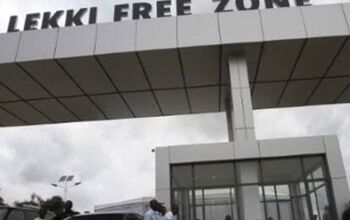
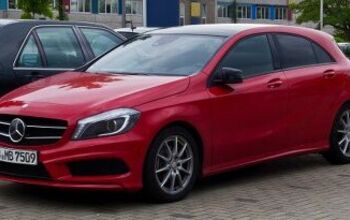









Comments
Join the conversation
There are overt trade barriers. There are sneaky trade barriers. Speaking as a consumer of motor vehicles, they are both total sh*t to me. You really wanna playa da game, playa by da proper rules. We will all be better off in the long run for it.
The Autoblog article has a dramatic title but completely fails to establish that BMWs actually ARE "cheaper than Hyundais", let alone explain why. As long as Korean cars that sell for more than $44000 are taxed equally I really don't see this as a violation of free trade agreements. Certainly not when import tariffs have been lowered and are continuing to go down. Granted, this has a greater impact on the German luxury brands (presumbly, this doesn't affect VW as much), but it seems to me more of a crackdown on businesses taking advantage of the tax code to live high on the taxpayers' expense. The tax code recognizes that a firm needs company cars with which to conduct business, but does one really need a high end luxury model to accomplish this? So the government draws a line and says that there are no corporate tasks that a sub-$44k car can't fulfill. If you really really need an S-Class (because the Bluetooth makes your phone calls so much clearer) than the cost over $44k isn't deductible.